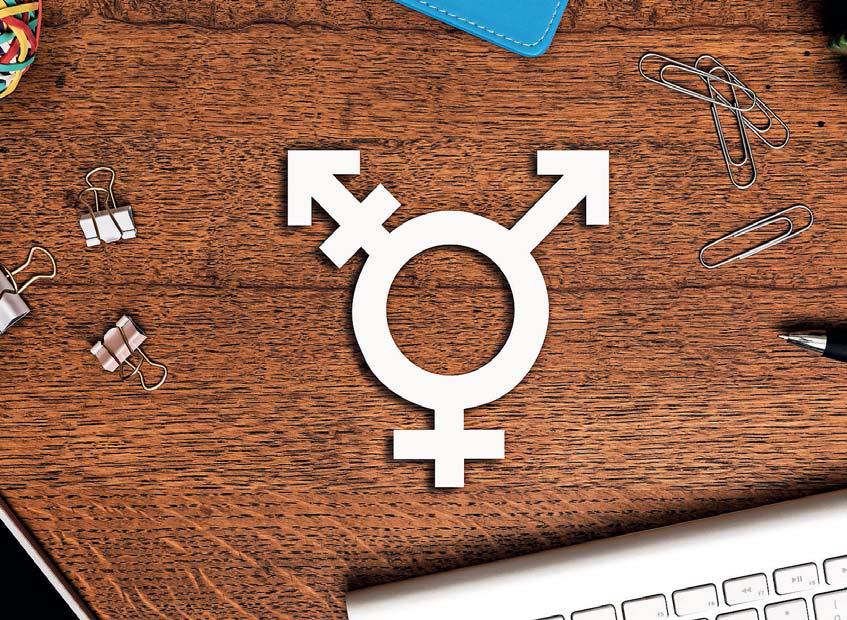Prøve GULL - Gratis
Calls to end 'fear culture' in gender research
The Guardian Weekly
|April 19, 2024
Cass review found medical professionals scared to discuss views amid risk of reputational damage and online abuse

Critical thinking and open debate are pillars of scientific and medical research. Yet experienced professionals are increasingly scared to openly discuss their views on the treatment of children questioning their gender identity.
This was the conclusion drawn by Hilary Cass last week in her landmark review of the services provided by the NHS in this field, which said a toxic debate had resulted in a culture of fear. Her conclusion was echoed by doctors, academic researchers and scientists, who told the Guardian this has had a chilling effect on research in an area in desperate need of better evidence.
Some said they had been deterred from pursuing what they believed to be crucial studies, saying merely entering the arena would put their reputation at risk. Others spoke of abuse on social media, academic conferences being shut down, biases in publishing and the personal cost of speaking out.
"In most areas of health, medical researchers have freedom to answer questions to problems without fear of judgment," said Dr Channa Jayasena, a consultant in reproductive endocrinology at Imperial College London.
"I've never quite known a field where the risks are also in how you're seen and your beliefs. You have to be careful about what you say, both in and out of the workplace." Sallie Baxendale, a professor of clinical neuropsychology at UCL's Institute of Neurology, received abuse after publishing a systematic review of studies that investigated the impact of puberty blockers on brain development. Her review found that "critical questions" remained around the nature, extent and permanence of any arrested development of cognitive function linked to the treatment.
The paper, which merely summarised the state of relevant research, provoked anger. "I've been accused of being an anti-trans activist, and that now comes up on Google and is never going to go away," Baxendale said.
Denne historien er fra April 19, 2024-utgaven av The Guardian Weekly.
Abonner på Magzter GOLD for å få tilgang til tusenvis av kuraterte premiumhistorier og over 9000 magasiner og aviser.
Allerede abonnent? Logg på
FLERE HISTORIER FRA The Guardian Weekly
The Guardian Weekly
My boyfriend's use of AI stops him thinking for himself
My boyfriend of eight years, who is 44, has ADHD and runs his own business.
2 mins
February 27, 2026

The Guardian Weekly
'Our land lets us all breathe clean oxygen'
The Congo River basin is home to a biodiverse ecosystem-and a relentless trade in timber and charcoal
3 mins
February 27, 2026

The Guardian Weekly
Nations apart: Andrew's UK arrest highlights US passivity on Epstein files
It is a tale of two nations.
2 mins
February 27, 2026

The Guardian Weekly
Under water: Engulfed by storms, but climate denial grows
In the week between Christmas and the New Year, two Spanish men in their early 50s - friends since childhood - went to a restaurant and did not come home.
3 mins
February 27, 2026

The Guardian Weekly
The crown in court
A brief history of royal run-ins with the law
3 mins
February 27, 2026

The Guardian Weekly
Big in Beijing
James Balmont's band, Swim Deep, plays to crowds of hundreds across the UK - but in China, they play to tens of thousands. And they're not the only ones
3 mins
February 27, 2026
The Guardian Weekly
Trump's Board of Peace is serving private interests more than public good
In Gaza, aid still trickles in at levels relief agencies say are far below what is required.
2 mins
February 27, 2026

The Guardian Weekly
Needle drops Weight-loss pills are here - and big pharma stands to gain
Oral tablets could bring obesity treatment into the mainstream, with the sector predicted to be worth $200bn by the end of the decade
6 mins
February 27, 2026

The Guardian Weekly
How Italians gradually warmed to their Winter Olympics
With the atmosphere in Rome subdued as the Winter Olympics unfolded across northern Italy, travelling to the Games was not on Amity Neumeister's radar.
3 mins
February 27, 2026

The Guardian Weekly
Fire and fury
Violence erupts as security forces kill feared cartel boss.
1 min
February 27, 2026
Listen
Translate
Change font size

